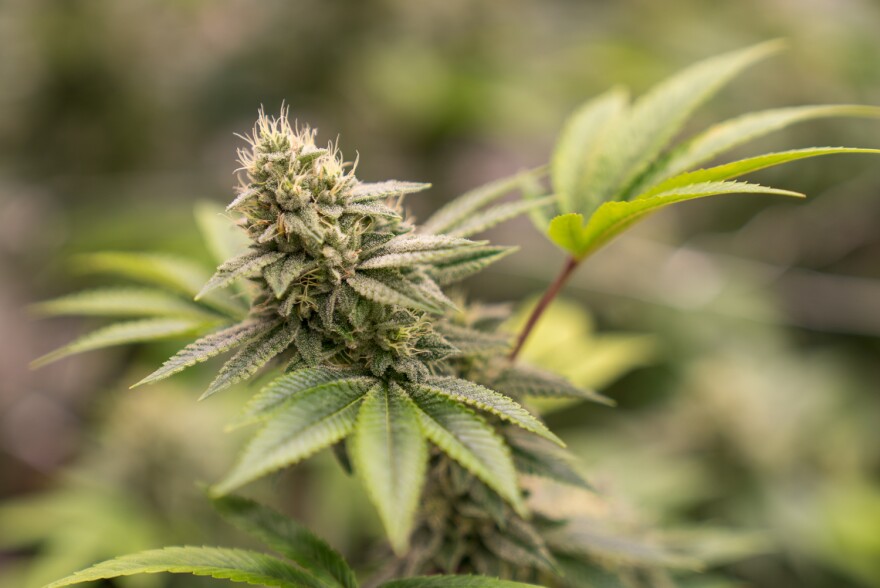Municipalities in Illinois that have cannabis dispensaries will start seeing more money from recreational marijuana purchases.
Cities, counties and villages that passed an individual 3% cannabis tax could start collecting it as of July 1. In the Metro East, that means more revenue for St. Clair County, Collinsville and Sauget, areas that passed a tax levy and where the region’s two current dispensaries operate.
Madison County won't collect an additional tax because county board members voted against allowing cannabis sales in unincorporated parts of the county last year.
While the tax increase will likely only be a few extra dollars per purchase, it represents more money for local city and county budgets at a time when some municipalities in the region have laid off workers or considered doing so because of the economic damage caused by the coronavirus.
So far, Collinsville has avoided layoffs by using the taxes it collects from cannabis sales to offset drops in other revenue sources, like sales tax, said City Manager Mitch Bair.
“It’s a safety net, a backstop,” he said. “We’re not going to rely on that 100% for operations after the pandemic, and that was never the plan.”
Illinois’ cannabis industry has emerged as a bright spot in an otherwise turbulent economy caused by the coronavirus. Bair anticipates Collinsville will bring in between $1.5 million and $2 million this year just from taxes on marijuana sales.
“This is a revenue source that has not been impacted, and it’s actually gone up,” he said.
As communities and states across the country face the economic fallout from coronavirus, tax revenue from cannabis will be attractive, said Bethany Gomez, managing director at Brightfield Group, a cannabis market research firm.
“Everybody can use more budget right now, and that’s an easy way to do it,” she said.
Municipalities can also apply these newfound revenues toward other goals, like in Evanston, where Gomez lives. The city will dedicate taxes it collects from marijuana to a reparation fund for its black residents.
“They’re one of the first ones [cities] that are thinking about using this revenue for a social equity purpose,” she said.
But there are downsides to increasing taxes on an already expensive product, Gomez said.
“Prices on cannabis are still very high in Illinois to begin with,” she said. “The more that you tax things, the harder it’s going to be to compete with the black market and to win over consumers into the legal market.”
Gomez explained California has struggled to build a thriving recreational market because the state added so many taxes on marijuana purchases. She added Washington needed to drastically cut taxes on cannabis when the market first opened there in 2014.
“If prices stay persistently high, it may prevent people from entering the category,” she said.
It may also cause some people to leave and go back to purchasing marijuana illegally, Gomez added.
Eric Schmid covers the Metro East for St. Louis Public Radio as part of the journalism grant program: Report for America, an initiative of The GroundTruth Project. Follow Eric on Twitter: @EricDSchmid
Send questions and comments about this article to: feedback@stlpublicradio.org





